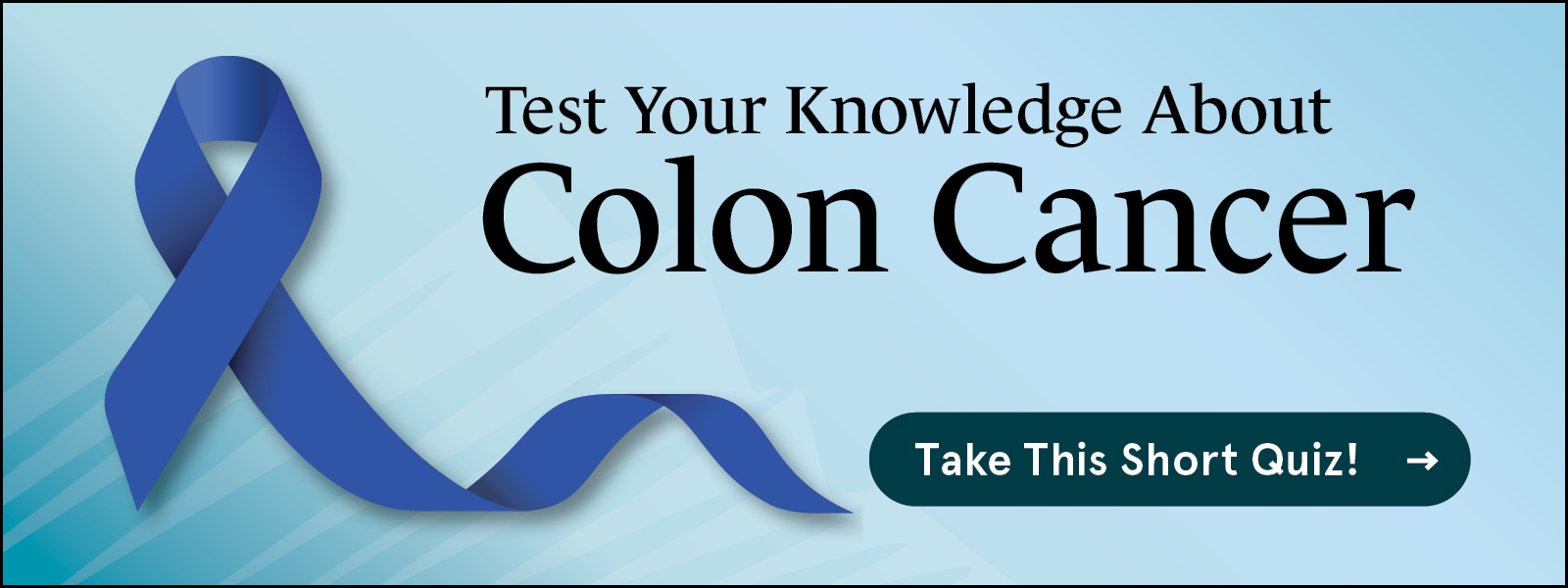Colon Cancer Signs & Symptoms
The thought of colorectal cancer can be incredibly scary, especially when there aren’t always signs and symptoms to alert you of its presence. And unfortunately, by the time you do experience symptoms, the cancer may be more advanced. Because of this, depending on your age, family history, and other risk factors, we at Rocky Mountain Cancer Centers (RMCC) recommend regular screening for colon cancer with your primary care physician. We also recommend that you become familiar with the early warning signs of colorectal cancer. The more you understand what to look for, the greater the chance of catching colon or rectal cancers early when they are most treatable.
Early Warning Signs of Colorectal Cancer
In most cases, colorectal cancer begins as small, noncancerous (benign) clumps of cells called adenomatous polyps, which over time, can develop into cancer.
Some symptoms you should not ignore because they may be signs of colon cancer include:
- Changes in bowel habits, such as diarrhea, constipation, or narrowing of the stool that lasts for more than a few days
- Rectal bleeding or blood in your stool
- Stool that is dark in color
- Unexplained weight loss
- Fatigue or weakness
- A feeling of not being able to empty your bowels
- Abdominal discomfort (i.e. bloating, gas, or cramps)
Related Reading

5 Common Signs of Colon Cancer That Are Easy to Overlook
Many people will have signs of the disease at an early stage— many of which can be overlooked. Learn about the 5 commons signs of colon cancer that are easy to overlook.

When Should You Start Colon Cancer Screenings?
Screening is important because it can prevent colorectal cancer by finding anything abnormal and treating it promptly before it develops into cancer.
When to Visit the Doctor
It’s important to remember that these symptoms don’t always mean cancer. Sometimes, they are the result of something else entirely, such as an infection, hemorrhoids, irritable bowel syndrome (IBS), or inflammatory bowel disease (IBD). However, you should always make an appointment to see your doctor if you have any of these problems. Early detection through proper colorectal screenings can make colon cancer easier to treat.
In hopes of preventing colon cancer, or catching colon cancer at an early stage, the American Cancer Society recommends regular colon screening for most average-risk people starting at age 45. If you have a family history of the disease or have other risk factors that could increase your chances of getting colon cancer, however, your doctor may recommend screening at a younger age.
Several different tests can be used to screen for colon cancer. RMCC recommends that you talk with your primary care physician to find out when you should be screened and which colorectal screening test(s) would benefit you the most.

